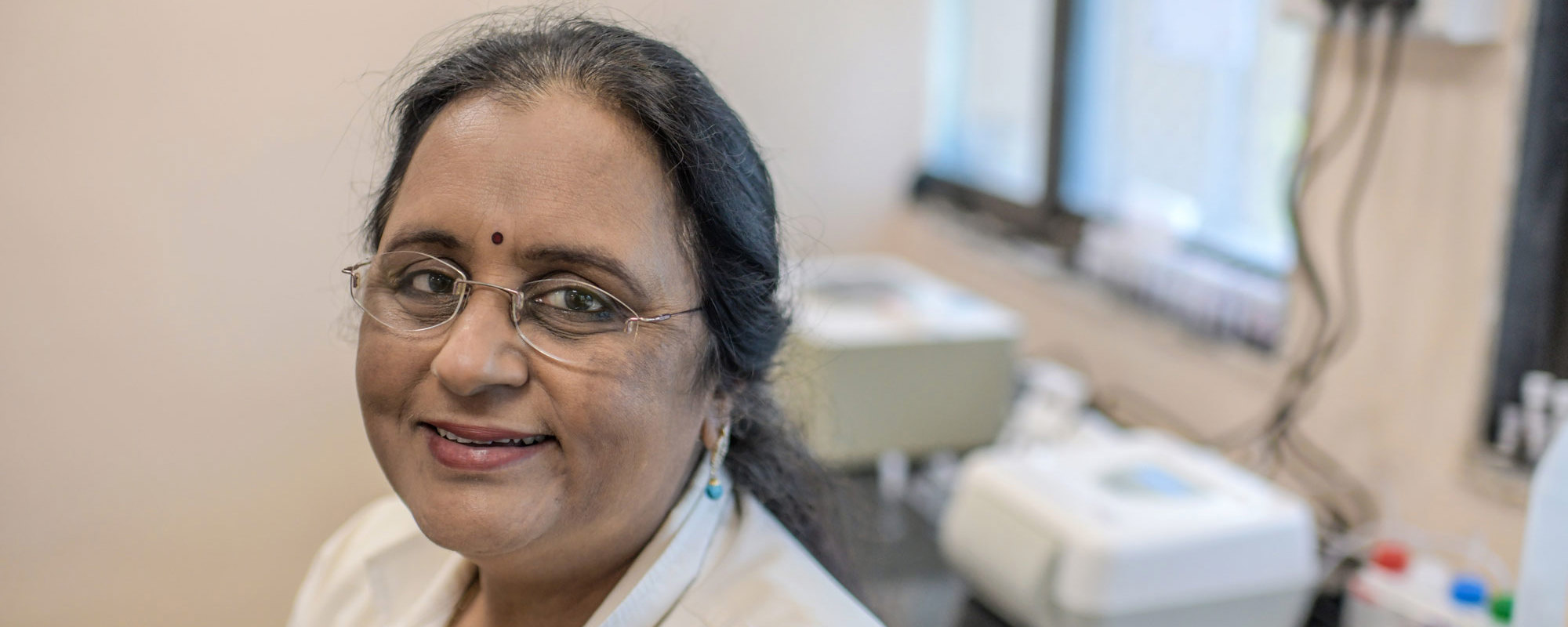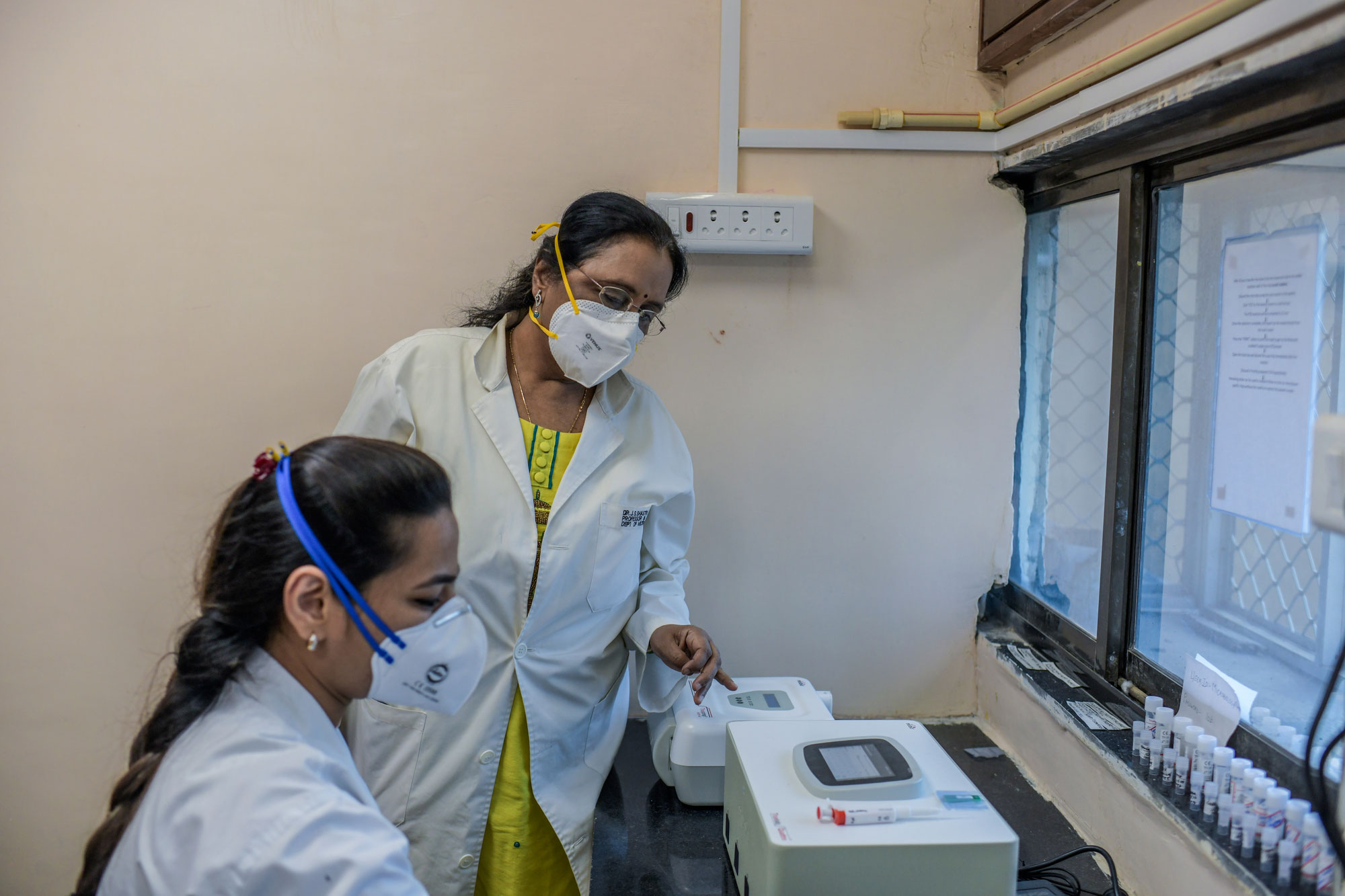

Dr. Jayanthi Shastri From Mumbai, India
Dr. Jayanthi Shastri leads a team of 53 doctors, paramedics and support staff at the Nair Hospital microbiology unit in Mumbai, India. She has been on the front line fighting infectious disease for 37 years.
Like many health care workers, the COVID-19 pandemic put an incredible amount of pressure on her and her team.
“We work long hours. There were times when many people on the team didn’t have transport to get to work, they struggled with homeschooling their children, and some had financial problems because their spouses lost their jobs,” she says.
On top of the new challenges created by COVID-19, Dr. Shastri’s team is still fighting another pandemic: tuberculosis (TB). India has the world’s highest TB burden. But because of lockdowns and other restrictions during the COVID-19 pandemic, TB diagnosis and treatment enrollment fell dramatically.
Determined to protect the gains made against TB, India integrated TB and COVID-19 screening programs and laboratory services. In Mumbai, a new diagnostic tool developed and manufactured in India allows hospitals to do rapid, onsite co-testing for both diseases. Dr. Shastri says co-testing has been a game changer.
“The capability of doing co-testing for both COVID-19 and TB is a real boon. It allows us to better understand the two diseases and their complications,” she says.

Copyright: The Global Fund/Atul Loke/Panos
The Global Fund is supporting India’s response to COVID-19 and mitigating the impact on HIV, TB and malaria programs. This includes procuring testing tools and personal protective equipment for health workers, strengthening laboratories and diagnostics, and capacity building for community health systems.
The official case notification numbers of TB patients in India in 2021 was over 2.1 million – a significant recovery that brings the country almost back to pre-COVID-19 levels.







